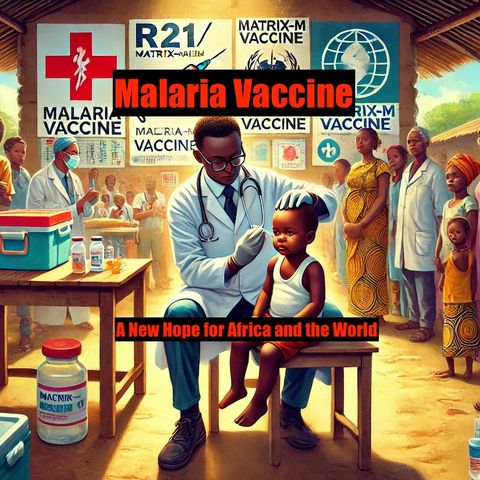Groundbreaking Advancements in Malaria Vaccine Development Offer Hope for Eradicating a Global Health Scourge

Descarga y escucha en cualquier lugar
Descarga tus episodios favoritos y disfrútalos, ¡dondequiera que estés! Regístrate o inicia sesión ahora para acceder a la escucha sin conexión.
Groundbreaking Advancements in Malaria Vaccine Development Offer Hope for Eradicating a Global Health Scourge
Esta transcripción es generada automáticamente. Ten en cuenta que no se garantiza una precisión absoluta.
Descripción
In the latest stride against global disease outbreaks, significant progress has been made in the research and development of vaccines against several major diseases, including malaria. Malaria, a life-threatening disease...
mostra másThe development of a malaria vaccine has been a high priority within the global health community due to the disease's widespread impact, claiming hundreds of thousands of lives annually. The World Health Organization estimates that there were 241 million cases of malaria worldwide in 2020, resulting in about 627,000 deaths, most of them among children under five years of age in Africa.
Recent advancements have brought new hope in the fight against malaria. Scientists have been working on various vaccine candidates, aiming to improve efficacy and accessibility. The most advanced of these, known as RTS,S/AS01 (sold under the brand name Mosquirix), has been developed by GlaxoSmithKline and was the first to receive approval from the World Health Organization for broad use. It offers partial protection, reducing episodes of malaria in children by about 39%.
Building on this foundation, researchers are exploring newer vaccine formulations that could provide higher efficacy and longer-lasting protection. One promising avenue involves the use of mRNA technology, similar to that used in some COVID-19 vaccines, to provoke a stronger immune response against the malaria parasite. Initial phases of research indicate potential, and clinical trials may soon provide clearer insights into the viability of these innovative approaches.
Another compelling development comes from teams who are focusing on vaccine distribution strategies that are tailored for remote and resource-limited settings, where malaria incidence is highest. Innovations such as thermostable formulations that do not require refrigeration and single-dose vaccinations could greatly enhance the delivery and effectiveness of malaria prevention efforts in these regions.
Moreover, alongside vaccine development, global health initiatives emphasize integrated strategies that combine vaccination with other preventative measures, such as mosquito control efforts, public education on mosquito bite prevention, and prompt diagnostic testing and treatment.
Overall, the ongoing research and development of malaria vaccines represent a critical component of the global strategy to eradicate malaria. As these new technologies and methods advance closer to deployment, they hold the potential to significantly reduce the incidence of malaria and ultimately save millions of lives, particularly in the world’s most vulnerable populations.
Información
| Autor | QP-4 |
| Organización | William Corbin |
| Página web | - |
| Etiquetas |
Copyright 2024 - Spreaker Inc. an iHeartMedia Company
